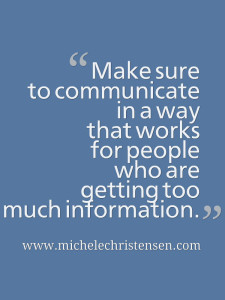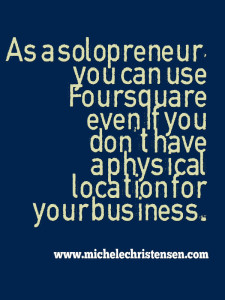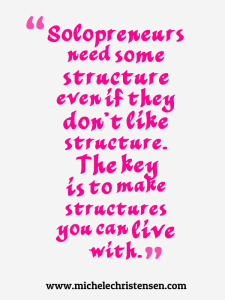 One of the fundamental practices of running a successful business is measuring the results of your efforts. There is an almost infinite list of things you could be doing to grow your business, but not all of them produce results in the same proportion to your efforts. Depending on your business, some activities will produce big results and some will produce few or no results. Every time you choose to engage in a promotional activity, you are choosing to leave countless others undone.
One of the fundamental practices of running a successful business is measuring the results of your efforts. There is an almost infinite list of things you could be doing to grow your business, but not all of them produce results in the same proportion to your efforts. Depending on your business, some activities will produce big results and some will produce few or no results. Every time you choose to engage in a promotional activity, you are choosing to leave countless others undone.
Another reason why it’s important to measure the results of your activities is that it’s almost impossible to get the best combination of promotional activities right from the start. Each business owner has to take their best shot at what will work and then adjust that approach as they get feedback. If something is working and bringing in business, do more of it. If something has not worked at all, do less or none of it. If something has worked but stopped working or isn’t producing results the way it used to, make a change.
It seems quite logical – try something, see if it works, adjust and repeat. However, this is probably the single biggest place I see business owners having trouble. Before being introduced to the concept of measurement, many business owners do what they think will work and when it doesn’t they either do more of the same or add yet more activities to their schedule. This is not the way to go! It will lead to exhaustion and wasting time. Getting on a marketing treadmill that keeps going faster as you add more activities will not give you the information you need to adapt and change, nor will it help you focus on the activities with the highest payout.
How might you go about measuring your results? It depends on what you are trying to evaluate, but here are a few examples to illustrate the idea.
- If you are using search engine optimization on your website, you’ll want to see if your efforts are increasing the number of visitors to your site. Start by measuring a baseline before you make any changes, then see if the number of visitors increases after you’ve done some SEO on your site. You’ll also want to compare conversion rates before and after (i.e. what percentage of those visitors made a purchase or took an action you asked them to).
- If you are tweeting out a link to a special offer, see how many people clicked on the link to view the offer and how many people ended up buying. A simple way to see how many clicks you got is to make a shortened link for the offer using Bitly or another link shortener that you use only for this purpose. Bitly can tell you how many clicks your link got.
- If you run a print coupon in a local publication, consider the cost to run the ad and how many people redeemed the coupon. Calculate if you came out ahead or not. Also consider if any of the new customers you got will stick around and become repeat customers.
These are just a few examples of the idea of measuring your results. If you are not measuring anything yet, I encourage you to get started today with just one thing.
What do you measure in your business? How have you improved because of your measurement?








